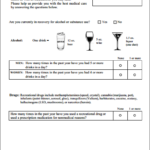Reading Mark’s story of leaving his World Vision job and transitioning to a financial planning career may help you decide if you should become a financial advisor.
This is such an interesting career transition: Mark Sheerin quit his World Vision job (doing “God’s work”) to work with a financial advisory firm in Atlanta, Georgia (no longer doing God’s work? Ah, but there’s the rub…). If you’re wondering if you should become a financial adviser, read Mark’s story of leaving his World Vision job and transitioning to a financial planning career. Also, I included a few tips to help you know if you should become a financial advisor – and how to start a career in financial planning.
“One part of my soul condemned me: How could I justify trading a vocation of serving the poor [a World Vision job] for a career among the wealthy?” he writes in Why I Left World Vision for Finance. “Believing that finance and feeding starving children both amount to good work in God’s eyes still challenges me on my best days.”
This reminds me of the Scriptural quote that says “the LOVE of money is the root of all evil.” Money itself isn’t evil – nor is working in the world of finance. Evil is planted and grows in the hearts of men and women, not in something as benign as a dollar bill. If you’re wondering if you should become a financial advisor but worry that it goes against your values, you can relax. The trick is holding on to your beliefs and values even as you build a successful career as a financial advisor.
Here’s a bit of Mark’s story – I’m fascinated by his decision to trade in his World Vision job to work as a financial planner in Atlanta, Georgia. At the end, I include a few thoughts on making this career transition (should you become a financial advisor?), plus resources on how to become a financial advisor.
Why Mark Left World Vision to Work as a Financial Advisor
God’s work isn’t limited to serving the poor with World Vision. Mark writes, “I remember Jesus’ mission to conquer sin and its effects in all its forms and in every place. Fighting against economic injustice through World Vision or through a financial planning firm are both mandated by God. Both tasks are valuable, both tasks seek redemption of broken systems and fallen people. Instead of digging wells, my firm walks with widows through the jungle of probate. Instead of sponsoring children, my firm partners with families through difficult, end-of-life decisions.”
Working as a financial advisor can help people start fresh. “I used to define my World Vision job as bringing opportunity to the poor so they might thrive. I used to define my new job in finance as providing guidance to people so that they could make the most prudent decisions to meet their goals and leave legacies. Now I describe both my careers in the same way: creating redemptive spaces in a fallen and tangled world.”
In his essay about leaving World Vision job and starting a new career as a financial planner, Mark shares more about his spiritual journey. If you’re hesitating to transition to a new career, read 7 Cautions for a Career Change at 40.
How to Know if You Should Become a Financial Advisor
What are you building with your life? This question has been plaguing me lately. What am I doing with my life, my career, my blogs? Am I chasing money, or am I doing God’s work? What does “God’s work” mean, anyway? I don’t know if you’re a spiritual person, but I do know you have the answer to the “should I become a financial advisor?” question. Think about it – why do you want a career in financial planning? Below, I offer a few ways to know if you should become a financial advisor.
What do you want your life to represent? There is nothing wrong with becoming a financial advisor, though I know they often get as bad a rap as lawyers and tow truck drivers! I have an innate distrust of financial advisors because I believe they’re charging me fees behind my back, like banks do. But this bad reputation that financial planners have can be a reason for you to become a financial advisor! You can be one of the “good guys” – like Mark Sheerin is.
You should become a financial advisor if you sincerely want to help people manage their money wisely, and you aren’t focused on wealthy clients. You should be a financial advisor if you genuinely care about protecting the financial interests and investments of people who need guidance and knowledge. You should become a financial advisor if you are certain you’ll use your powers for good, not evil. And finally, you should become a financial advisor if you know you’ll be accountable to others to help you stay in line with your values and beliefs. Choosing a career is about SO much more than how much money you’ll make!
“Like most big decisions in life, the most meaningful manifestations of a choice are apparent in many small ways, rather than in a handful of dramatic ones,” says Mark.
What do you think of Mark’s career transition – or your own decision on becoming a financial advisor? I welcome your thoughts below – especially if you have tips on how to know if you should become a financial advisor.
Resources on How to Become a Financial Advisor
The Million-Dollar Financial Advisor: Powerful Lessons and Proven Strategies from Top Producers by David J. Mullen Jr. The best financial advisors are well equipped to succeed regardless of market conditions. Based on interviews with fifteen top advisors, each doing several million dollars worth of business every year, this book on how to become a financial advisor distills their universal success principles into thirteen distinct lessons. Also, an account of a remarkable and inspiring career transition that shows it’s never too late to reinvent yourself!
Storyselling for Financial Advisors : How Top Producers Sell by Scott West and Mitch Anthony. Put the power of story telling into selling financial products. The authors explain the process of making intuitive connections, then translate their findings into understandable and practical strategies that any financial advisor can use. They present actual stories, including many by Warren Buffet, one of the greatest “storysellers” of all time.
About Mark Sheerin. Mark serves as the Chief Operations Officer at Sherrill & Hutchins Financial Advisor in Atlanta, Georgia. He actively pursues the accurate implementation of each client portfolio investment strategy to make sure clients are meeting their personalized investment goals. A graduate of Wheaton College as well as Beeson Divinity School, Mark worked in Operations for U.S. Department of Labor and the Agency for International Development funded programs for six years both domestically and abroad. He is married to Katie, has two children, and no cats.





